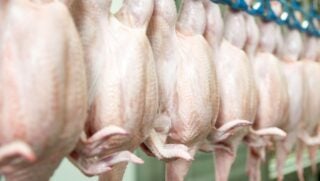After President Trump’s Cuba policy announcement Friday, several agricultural stakeholders have sounded off in disapproval. The new policy will keep U.S. companies from doing direct financial transactions with companies controlled by the Cuban military.
“Cuba should be an easy market for U.S. corn farmers. Instead, that market has gone to our competitors—costing us an estimated $125 million in lost opportunity each year,” said Texas farmer Wesley Spurlock and president of the National Corn Growers Association. “If trade with Cuba were normalized, it would represent our 11th largest market for corn. Instead, we have just 11 percent market share in a country only 90 miles from our border. At a time when the farm economy is struggling, we ask our leaders in Washington not to close doors on market opportunities for American agriculture.”
“We should be doing more, not less, to encourage U.S. agricultural exports to Cuba,” said Zippy Duvall, President, American Farm Bureau Federation. “Our farmers and ranchers and the Cuban people would benefit from increased sales of high-quality, American-grown food and feed. The American Farm Bureau will continue to work with the administration and Congress to maintain and improve the conditions for agricultural trade with Cuba.
“Cuba is a $2 billion annual food-import market. Currently, because of some remaining restrictions, the United States sells about $200 million in agricultural products to Cuba, but that nation represents the kind of growth opportunity America’s farmers and ranchers need during this challenging economic period. Self-imposed trade restrictions have kept America’s farmers and ranchers from competing on a level playing field and have closed off one of our nearest ag export markets. Cuba has not purchased any rice or wheat from the U.S. in many years, instead buying from other countries around the world. As we cope with the biggest drop in farm prices in decades, we need to be opening up markets for American farm goods, not sending signals that might lead to less access.”
The U.S. Wheat Associates (USW) and the National Association of Wheat Growers (NAWG) are hopeful that the increasing public and congressional support for more open trade will lead to an eventual end to the U.S. embargo.
“This is a political process and that means there are going to be steps forward and back,” said USW President Alan Tracy. “Our organizations support measures that move toward ending the embargo. Cuba is a significant wheat importing nation and our farmers can supply high-quality wheat at a lower cost than Cuba pays now to import European and Canadian wheat. Wheat is an important food grain that should be above politics, but the embargo will likely have to end before wheat farmers can help meet the increasing demand for agricultural products to help feed the Cuban people.”
“Wheat growers are facing significant economic hurdles and need more markets,” said David Schemm, a wheat farmer from Sharon Springs, KS, and NAWG President. “NAWG supports the effort to end the embargo on Cuba because it is what is best for our farmers. Farmers know that agricultural trade is a proven way to foster stronger and more productive ties with folks who live outside the United States.”
While the U.S. Agriculture Coalition for Cuba (USACC) is disappointed in the decision to undo recent federal initiatives that lay the groundwork for normalizing trade relations with Cuba, the group plans to continue to work with the Administration and Congress to repeal trade restrictions that currently work against the economic interests of both nations.
“USACC remains confident that the United States will eventually establish normal relations with Cuba. According to research from the U.S. Department of Agriculture, normalizing trade relations with Cuba could increase agriculture exports by $1 billion per year—compared to about $195 million in 2016. Lifting the embargo would provide extensive opportunities for U.S. producers, processers, and distributers to increase exports of these goods, enter new business relationships on the island, and generate new economic benefits for both countries.
“USACC hopes continued progress will be made to lift the embargo to offer greater opportunities for our two nations in the food and agriculture sectors.”


